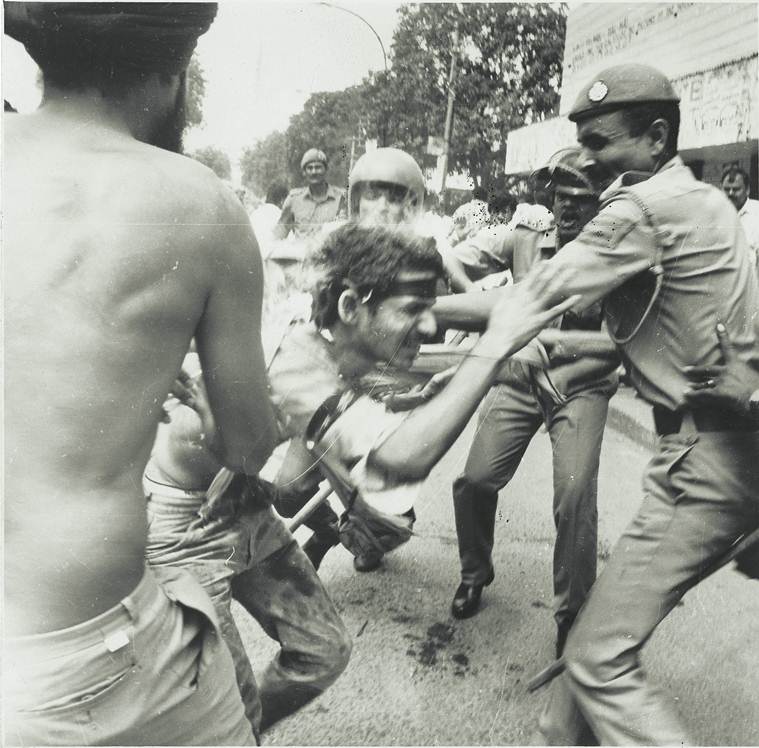Relevant for Sociology, GS & Essay:-
- Justice Jeevan Reddy in the Mandal judgment held that “a backward class cannot be determined only and exclusively with reference to economic criterion. It may be a consideration or basis along with and in addition to social backwardness, but it can never be the sole criterion…”

- The decision of the Union Cabinet to provide reservation of 10% for “economically weaker sections of the people who are not covered by any of the existing schemes of reservation” and to bring in amendments to Articles 15 and 16 for this purpose has to be examined from the point of view of social realities and Constitutional provisions.
The social reality:-
- It is a fact that there are poor individuals even among the Socially Advanced Castes (SACs), i.e., the non-Scheduled Castes (SCs), non-Scheduled Tribes (STs) and non-Socially and Educationally Backward Castes (SEdBCs). They too do need help. The issue is what is the specific problem they face, and what is the appropriate Constitutionally sustainable solution for it.
Provisions of the Constitution:-
- The relevant Constitutional provisions stand on two legs, which are mutually supportive. On the one hand, there is the principle of Equality, which prohibits the State from discrimination against any citizen on grounds only of religion, race, caste, sex, place of birth or any of them under Article 15(1), and guarantees “equality of opportunity for all citizens in matters relating to employment or appointment to any office under the State” under Article 16(1), in addition to prohibition against discrimination against any citizen on the same grounds as in Article 15(1), specifically with respect to employment or appointment under the State.
- The other leg is the special provisions, which under Article 15(4) empowers the State to “make any provision for the advancement of any socially and educationally backward classes of citizens or for the Scheduled Castes and Scheduled Tribes”, and under Article 16(4) provides “for the reservation of appointments or posts in favour of any backward class of citizens, which in the opinion of the State, is not adequately represented in the services under the State”.
- The term “backward class of citizens” has been generally understood, and also defined by the Supreme Court in the Mandal case (Indra Sawhney vs Union of India, 1992) judgment, to include the SCs, STs, and SEdBCs. These are not exceptions, but special provisions to ensure that the principle of Equality enshrined in Articles 14, 15(1) and 16(1) becomes really effective, in the peculiar inherited Indian context of a society riddled by gross inequalities between social classes.
Rationale for SC, ST, SEdBCs reservations:-
- As the Mandal judgment describes, the founding fathers of the Constitution were keenly and poignantly aware of the “historic injustices and inequities” prevalent over the centuries in Indian society. These were not inequities against individuals. These were deprivations imposed on certain social classes as a whole.
- Such social classes consist of a number of castes. It is well known that the worst affected are the SCs, on whom the caste system imposed “untouchability”, which is not merely a series of humiliating prohibitions and injunctions, but also a mechanism to deprive them of access to education and every opportunity for advancement and upward and outward mobility. Equally deprived, though for different reasons, were the STs, who have been steadily pushed back to remote areas.
- The third category of social classes is that of the SEdBCs, who are not victims of untouchability, but have been accorded a low position and status in society by the caste system, and each of the castes of which have often been traditionally linked with occupations socially considered to be lowly. They too were denied access to education and opportunity to have a “look-in” into administration and governance of the State.
- The Supreme Court in the Mandal case judgment quoted Dr Ambedkar’s statement in the Constituent Assembly while replying to the debate on the provision in Clause (4) of Article 16 (at the draft stage Clause (3) of Article 10) that, “the purpose of the clause (4) was to emphasise that there shall be reservation in favour of certain communities which have not so far had a ‘proper look-in’ into so to say the administration”.

